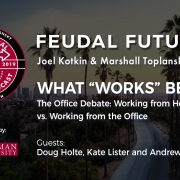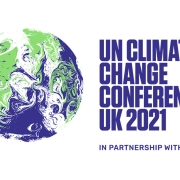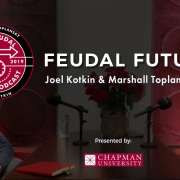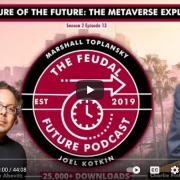The Case for American Optimism
Now that Trump has been edged out of office, Joe Biden may emerge as the harbinger of a brighter, better blue future or as a version of Konstantin Chernenko, the aged timeserver who ran the Soviet Union in its dying days. To succeed, he will have to confront massive pessimism about America’s direction, with some 80 percent thinking the country is out of control. The Atlantic last year compared the U.S. to a “failed state,” while The Week predicts “dark days ahead.”
Conservative opinion, particularly after the election, is also increasingly mordant. The American Conservative’s Rod Dreher thinks we are heading towards a state of “no families, no children, no future” as the cultural Left and its gender-fluid ideology take hold of the culture. Marco Rubio has already suggested that the new president’s administration will prove “polite & orderly caretakers of America’s decline.”
America as a whole is not a “failed state” but a place where people move from areas of limited opportunity to those with more. The pandemic has accelerated this process. The Congressional Budget Office has suggested that the economy could take a decade to recover, but some metropolitan areas, such as Indianapolis, Salt Lake City, Austin, Dallas–Fort Worth, and San Antonio, as well as others across the South, have recovered far more decisively from the pandemic than Los Angeles, New York, Boston, or San Francisco. Similarly, according to the Bureau of Labor Statistics, California and New York suffered the highest unemployment rates outside of tourist-dominated Nevada, Louisiana, and Hawaii.
The pandemic has accelerated a shift away from expensive coastal cities that was already well under way before it hit. Urbanistas blame this migration on the pandemic, which was most deadly in dense urban areas, but it has been going on for years, for many reasons. Workers in New York City are the least likely to return to offices, according to Kastle Systems, because of virus concerns about public transportation and skyscrapers as well as the city’s population density.
The home office is replacing at banks and leading technology firms, the office for many and, to many manager’s surprise, with surprising productivity gains. A University of Chicago study suggests that this could grow to as much as one-third of the workforce, and in Silicon Valley, the number could reach nearly 50 percent.
Many companies predict much of the workforce will remain online, some part-time and some all the time. The impact on our geography could be profound: An estimated 14 to 23 million remote workers may relocate as a consequence of the pandemic, according to a recent Upwork survey, with half of them saying they are seeking more affordable places to live.
These trends likely will moderate, but much of the repositioning of work may continue even after the introduction of a vaccine. To be sure, lower rents could provide a great opportunity to reinvent and revitalize our cities, by luring a new generation of immigrants and young entrepreneurs. But the political wave now sweeping our cities threatens to undermine even a modest rebound.
In recent months, many of our once most attractive cities — Minneapolis, Seattle, San Francisco, Los Angeles, and Portland — have become largely dysfunctional, particularly in their downtown areas. Movements to limit the police and cut their funding have become de rigueur in our most progressive cities, and violent crime in places such as Chicago, Minneapolis, New York, and Los Angeles is picking up. Given the failures of urban educational systems, the return of fear to the cities will continue to force out many middle-class families.
The pandemic has widened the gap between the vast majority and the relatively small upper-middle and upper classes. It could widen further under an administration that appears determined to fill itself with people who have close ties to Wall Street, technology firms, and the China lobby. That tendency can be seen in Biden’s proposed choice for secretary of state (Antony Blinken) as well as his naming as head of his economic council Brian Deese, a high-ranking official at BlackRock — a firm that, like many woke corporations, has pushed “stakeholder capitalism.” In this formulation, large companies are expected to serve not only their shareholders but a specific agenda of set progressive values on such things as climate change, gender roles, and “systemic” racism.
Read the rest of this piece at National Review.
Joel Kotkin is the author of The Coming of Neo-Feudalism: A Warning to the Global Middle Class. He is the Presidential Fellow in Urban Futures at Chapman University and Executive Director for Urban Reform Institute — formerly the Center for Opportunity Urbanism. Learn more at joelkotkin.com and follow him on Twitter @joelkotkin
Photo credit: Tim Brown via Flickr under CC 2.0 License.





 Public Domain
Public Domain
 D. Ramey Logan, used under CC 4.0 License
D. Ramey Logan, used under CC 4.0 License